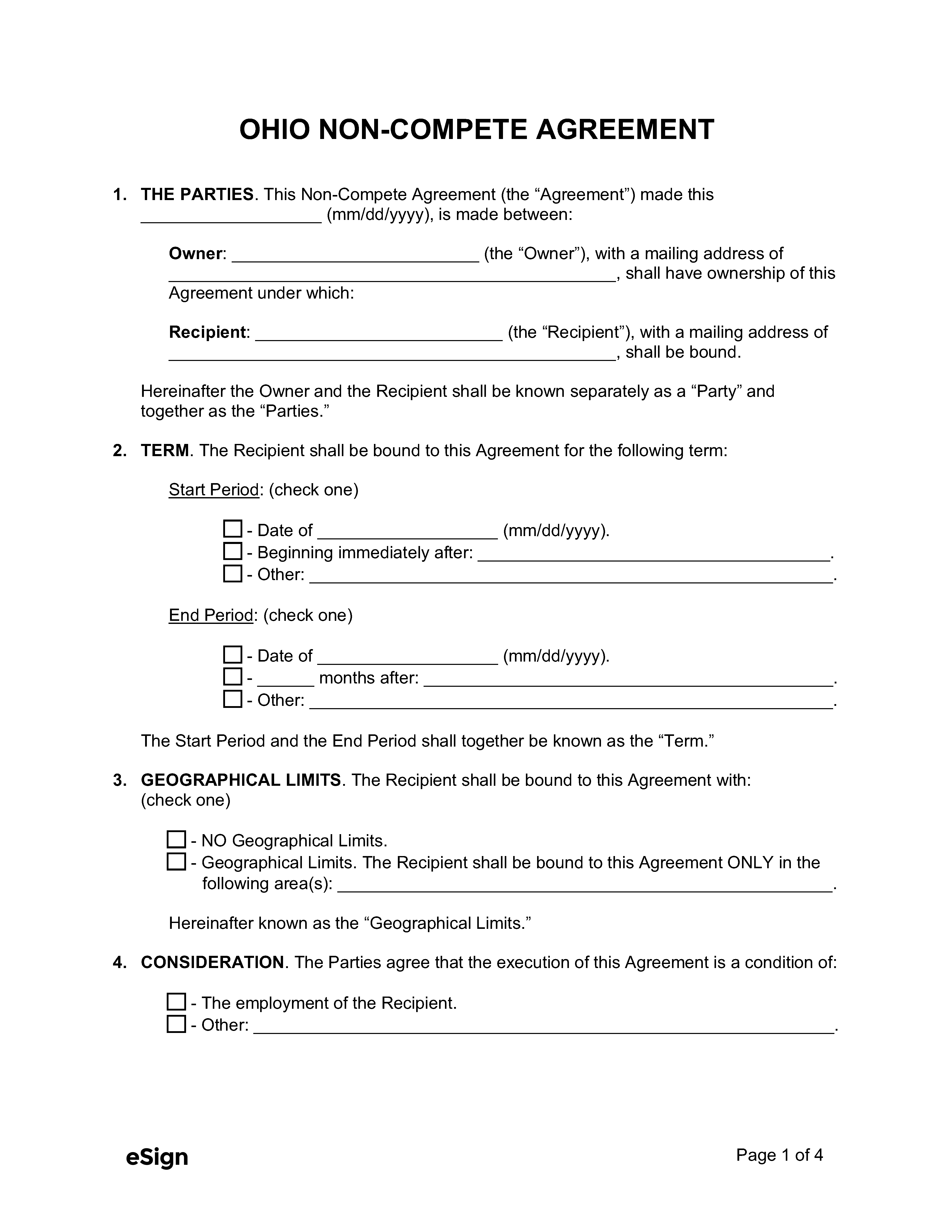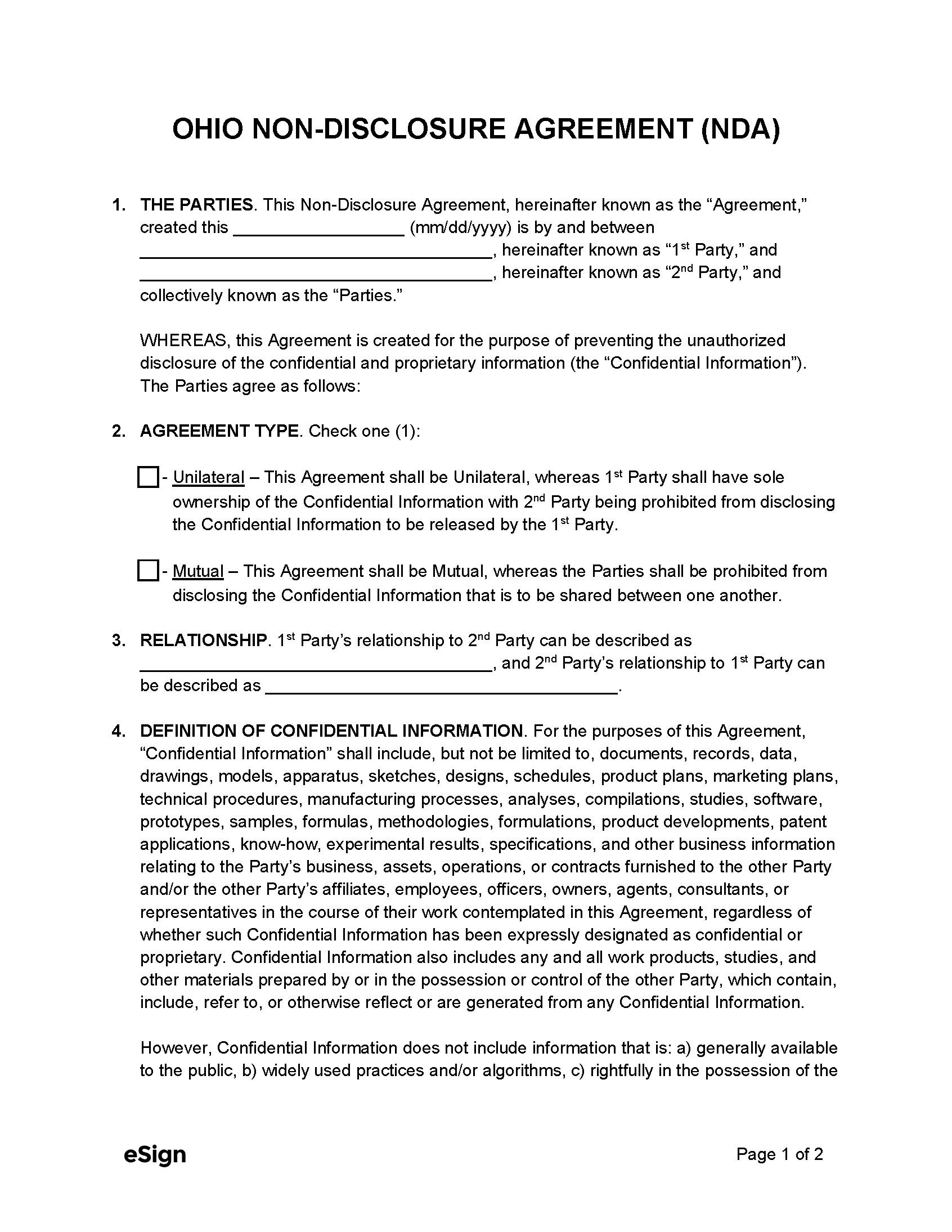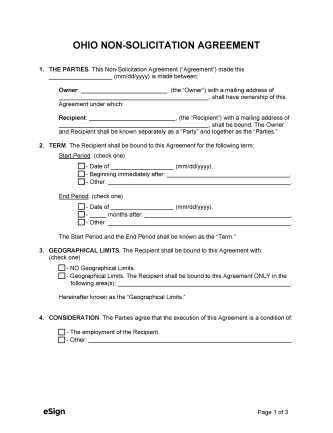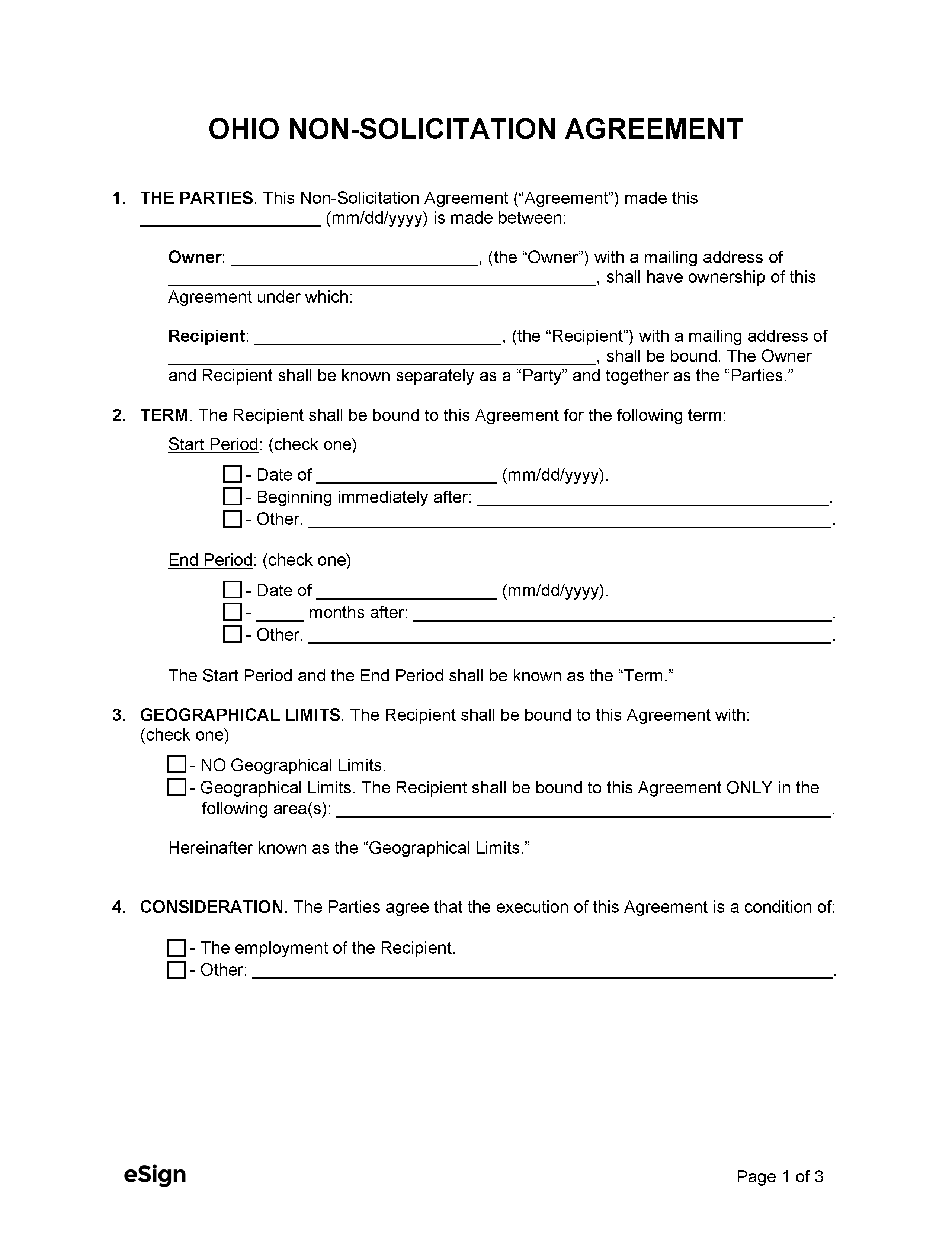A non-solicitation agreement can protect these relationships by preventing a terminated employee or contractor from taking these contacts with them when they leave. The document enables the employer to create fair geographical and durational limits and choose which relationships (employees, customers, etc.) the employee is prohibited from engaging with. An employer must make sure that they don’t create an agreement that is too broad, such as including potential clients or individuals no longer in their employ.
- Statutes: Not mentioned in state statutes.
- Legally Enforceable?: Yes, if a non-solicitation is reasonable and is established only to protect legitimate business interests (Cent. Bus. Svcs. v. Urban, 179 Ohio App. 3d 111 (2008)).
- Requirements: There are no requirements set forth in Ohio statutes, but NSAs are governed by common law in the same manner as non-compete agreements. When a court of law judges restrictive covenants, they will try to determine whether the restrictions are overbroad, impose an undue hardship on the employee, or are injurious to the public (Professional Investigations v. Kingsland, 69 Ohio App. 3d 753 (Ohio Ct. App. 1990)).
Related Forms (2)

Download: PDF, Word (.docx), OpenDocument

Download: PDF, Word (.docx), OpenDocument

